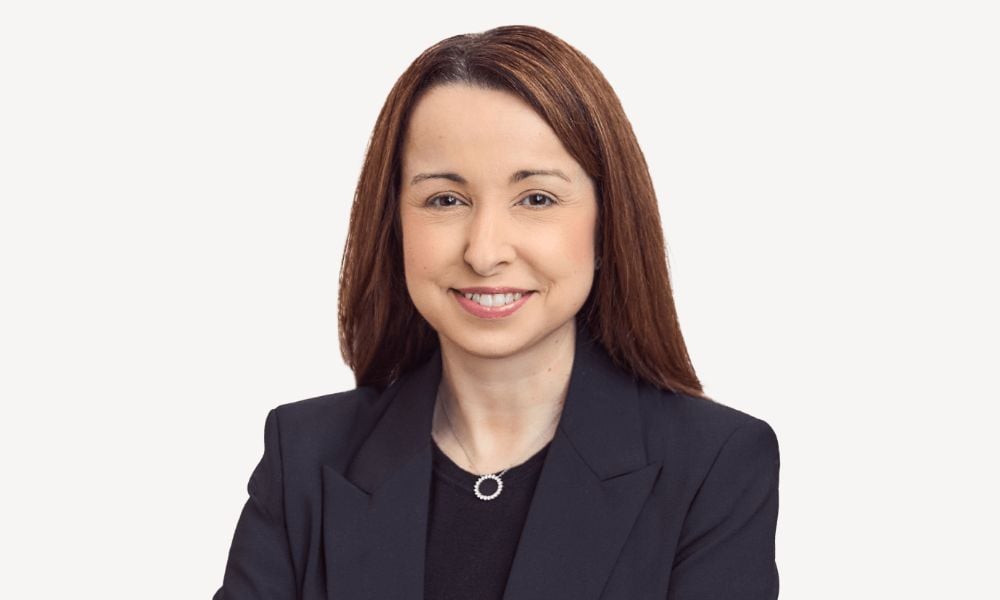
'You need to invest intentionally across the full employee experience, making sure the values you say you want as a company are truly being lived through operating practices'

Marina Harris just started as CPO of Clio two weeks ago, but with HR leader roles at Netflix, Wealthsimple and Cisco under her belt, she already has some pretty big ideas.
With hiring mission-driven talent at scale her biggest task to start, employee trust is top-of-mind, she tells HRD.
“With the current landscape, and the past year-and-a-half or so of layoffs increasing and employees changing the way they work, you see a growing divide, and it's been on my mind,” Harris says. “How do you build that trust and how is trust built in general?”
Harris relies on the “Triangle of trust”, a theory conceptualized by Harvard Business School professor Frances Frei that says if one of the three key points – authenticity, logic or empathy – are broken by an employer, employee trust will be broken.
“You need to be authentic, and you need to be empathetic, and whenever you break trust with employees, it's usually that one of those three wobbles,” says Harris.
“I think with a lot of the recent decisions that leaders are making across companies, you see some of those wobbles, whether employees are saying, ‘This doesn't make sense, why are you doing a forced full-time return to the office?’ or ‘Why are you not being empathetic about my experience?’ With a lot of decisions that we make, I often look at ‘Is there a wobble there, and how do you make sure that you're showing up authentically as a leader and making logical decisions?’”
One of those logical decisions, Harris says, includes hybrid working models that make sense and are employee led through feedback and communication.
Clio has adopted one “anchor day” per week in a local hubs hybrid model, an approach that Harris says has been successful, but they are still open to evolving employee sentiment.
“Our employees come into their local hub once a week, and it really allows them some predictable time to connect with their teammates, to have that kind of intentional time together,” says Harris.
“Whether it's kicking off key projects, checking in, doing working sessions. And we're finding that that's really working for folks, it gives them the best of both worlds.”
Clio continues taking stock of employee sentiment around their work situations with twice-yearly surveys, the anchor day being a new adoption that was the result of those surveys. There are also remote employees who are supported individually through online communication platforms, and twice a year they host on-site sessions.
These strategies are all about showing accountability to employees, and keeping that logic piece at the forefront so employees aren’t sideswiped by decisions that might not seem to make sense, she says.
“Being truly accountable to employees about the business we're building, decisions we're making, not just letting employees know what decisions are made but really sharing context persistently with folks so they understand the ‘why’,” Harris says.
“A lot of it is thinking through the impact on our employees, and make making sure that they're continually supported and brought along with any changes.”
A lesson Harris is bringing to Clio from her experience particularly as a senior HR director at Netflix is the concept of being intentional about who is brought into the organization. This means hiring slowly and knowing when and who to let go, respectfully.
“We were very clear, for example, we did not tolerate brilliant jerks,” Harris says.
“So even if you had tremendous impact in terms of business results, but you weren't living up to the values, that was not to be accepted … you really need to invest intentionally across the full employee experience, and making sure that the values you say you want as a company are truly being lived through your operating practices.”
Harris says that through her experiences at Netflix, Wealthsimple and Cisco, where she started her HR journey as a recruiting contractor, she has learned to invest in creating cultures where feedback is strong and employees are empowered to have opinions about operations, and to voice them.
“I think you really learn a lot about a company in the way that they make decisions and really invest equally in employees so that it's a reciprocal experience,” says Harris.
“It's not a zero-sum game between company and employee, and that goes a long way in terms of building that trust.”